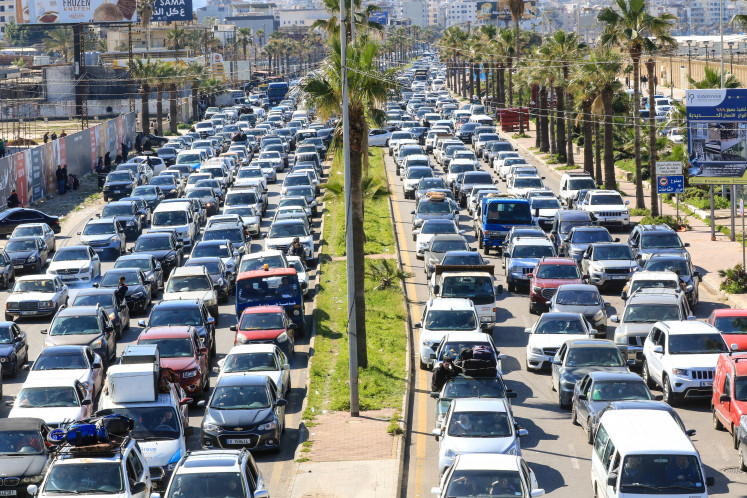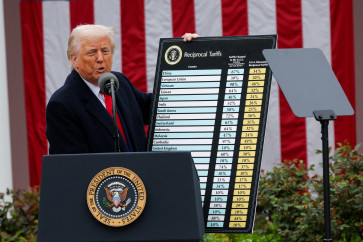Popular Reads
Top Results
Can't find what you're looking for?
View all search resultsPopular Reads
Top Results
Can't find what you're looking for?
View all search resultsTrump's tariffs will accelerate US economic decline
Redistributive taxation, while it is not easy to craft or implement, can encourage innovation and the equitable distribution of growth benefits, whereas Trump's tariffs will only undermine the US' competitive edge and do harm.
Change text size
Gift Premium Articles
to Anyone
O
n March 26, President Donald Trump signed an executive order imposing a 25 percent tariff on all cars and light-duty trucks imported into the United States. This measure took effect on Thursday, one day after the administration rolled out its “reciprocal tariffs” on US trading partners. Trump tried to reassure nervous Americans, promising that “our automobile business will flourish like it’s never flourished before”.
It won’t. While Trump’s tariffs fly in the face of conventional economic wisdom, from Adam Smith and David Ricardo to John Maynard Keynes and Milton Friedman, his confidence might lead some to think there’s a hidden logic behind them.
Presumably, the tariff on cars and trucks aims to incentivize automakers to establish factories in the US. But on closer inspection, it becomes clear that this rationale is deeply flawed. And while it will negatively affect many countries, especially Canada, Mexico and Japan, its most devastating impact will be felt in the US itself.
Trump’s critics rightly point out that the tariff will raise US car prices, but that is just one of its many drawbacks.
Consider, for example, that industries like automobiles (and semiconductors) have substantial fixed production costs. Given that a sudden tariff reduction after these sunk costs, such as acquiring land, building factories and obtaining permits, have been incurred could lead to significant losses, investors would need to be assured that the tariffs will remain in place for at least 10-15 years.
If the government could somehow signal to investors that the tariffs will remain in place for the foreseeable future, it is likely that new car factories will be established in the US, increasing demand for labor.
But that may not be a positive development. Far from making American automobiles great again, the artificial boost in demand for traditional labor could harm the US economy’s long-term health.


















